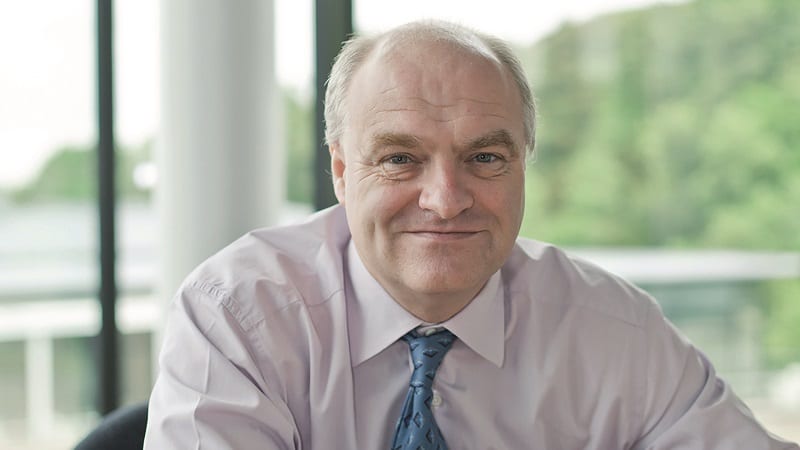Baillie Gifford is set to receive a boost from its holding in Ginkgo Bioworks after the biotech firm agreed to go public by merging with a special purpose acquisition company (Spac), handing it a $17.5bn valuation.
The Scottish asset manager first invested in Ginkgo Bioworks in 2016 and the company was a 1.4% holding in the Scottish Mortgage Investment Trust, run by James Anderson (pictured) and Tom Slater, at the end of March, according to its results published last week.
It it also a 0.6% holding in the Baillie Gifford US Growth Trust, as at the end of March.
Last week, Ginkgo Bioworks announced it had agreed to go public via a merger with Spac, Soaring Eagle Acquisition Corp which is expected to complete in the third quarter of 2021.
A statement said the transaction implies a pre-money equity valuation for Ginkgo of $15bn and it is expected to provide up to $2.5bn of gross cash proceeds.
The gross cash proceeds include $1.7bn of Soaring Eagle’s cash in trust and $775m in proceeds from an oversubscribed private investment in public equity (Pipe) transaction which prices shares of Ginkgo Bioworks at $10.
Baillie Gifford is leading the Pipe, along with Putnam Investments, and funds and accounts managed by Counterpoint Global, a fundamental equity division of Morgan Stanley Investment Management.
Additional participation includes accounts advised by Ark Investment Management, ArrowMark Partners, Bain Capital Public Equity, Berkshire Partners, Cascade Investment, Casdin Capital, Franklin Advisers, T Rowe Price and Viking Global Investors.
Ginkgo Bioworks at the forefront of Covid testing efforts
Ginkgo Bioworks is expected to generate $150m of revenue in 2021, representing approximately 96% growth from 2020.
The firm’s founders have been working together for nearly 20 years since they first met at MIT. It was launched in 2008 with the aim of developing a platform that makes cell programming easier.
It uses advanced robotic automation, proprietary software and data analytics to continuously improve its technology, known as the ‘foundry’, as well as the knowledge and re-usable biological assets required to engineer biology, known as ‘codebase’.
Ginkgo Bioworks co-founder and chief executive Jason Kelly said: “The magic of biology is that cells run on digital code similar to a computer, except that instead of 0s and 1s it’s As, Ts, Cs and Gs.
“Ginkgo’s platform makes it easier to programme this code, and we are making this platform available to organisations working to solve our most pressing problems.”
The firm is actively supporting a number of Covid-19 response efforts, including community testing, epidemiological tracing, vaccine development and therapeutics discovery.
Baillie Gifford reckons biotech firm has potential to be ‘highly profitable’
In a post on Baillie Gifford’s website, dated November 2020, the asset manager highlighted Ginkgo Bioworks’ ‘foundry’ which it said enables 10-15 staff to match the output of 100 PhDs.
It also flagged Ginkgo’s edge through its ‘codebase’ which it compared to “a proprietary software library which is written in DNA”.
“The potential competitive advantage of Ginkgo Bioworks lies in their licensing model, which means that virtually all licensing revenue should fall to the bottom line,” Baillie Gifford said. “The management team’s focus on automation creates an opportunity to scale significantly, at speed, without significantly increasing labour costs. This has the potential to create a highly profitable business.”
Unlisted investments represented 19.5% of Scottish Mortgage’s total assets at 31 March, up from 17% at the half-year stage. The trust’s policy allows for up to 30% in unlisted companies.
Elsewhere in the Scottish Mortgage portfolio, Recursion Pharma (0.3% of total assets) and Zymergen (0.1%) have gone public, while Joby Aviation (0.1%) has agreed to merge with a Spac.
The US Growth trust has 12.7% of the portfolio in unlisted companies.









